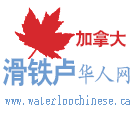 |
|
Beijing and Tokyo secured 20 key points of consensus on Saturday, making a significant breakthrough in bilateral relations, which analysts said will further strengthen their commitment to cultivating stable, constructive economic and trade ties aligned with the demands of the new era. The points of consensus were reached during the sixth China-Japan High-Level Economic Dialogue — the first in six years — which was co-chaired by Foreign Minister Wang Yi and Japanese Foreign Minister Takeshi Iwaya and attended by officials from government departments of both countries. The key points of consensus include promoting the silver economy, expanding collaboration in third-party markets, strengthening supply chain cooperation, and expediting negotiations for a China-Japan-Republic of Korea free trade agreement. "The close industrial cooperation and deeply intertwined economic interests, which have benefited both peoples, demonstrate that China and Japan are partners, not rivals, and they offer opportunities for each other, not threats," Wang said. Since the normalization of diplomatic ties in 1972, bilateral trade has surged more than 300-fold, standing at around $300 billion annually for the past 15 years, and cumulative two-way investment has reached nearly $140 billion, according to Wang. He called for China and Japan — both major players in the global economy — to embrace innovation, enhance cooperation and minimize disputes, while cautioning against politicizing economic security. Yang Bojiang, director of the Chinese Academy of Social Sciences' Institute of Japanese Studies, said, "Amid rising unilateral protectionism and sluggish global economic recovery, strengthening China-Japan economic ties will help mitigate uncertainties in the world economy." Hidetoshi Tashiro, chief economist at Japanese consultancy Infinity LLC, said that the dialogue "serves as a model for cooperation among non-US countries", especially at a time when "the United States appears to be reverting to a 19th century style of protectionism or mercantilism". During his meeting with Japanese Foreign Minister Iwaya, Foreign Minister Wang said that correctly understanding and addressing historical issues is crucial for Japan's postwar reintegration into the international community, serves as the political foundation for its relations with neighboring countries, and is a key measure of Japan's commitment to peaceful development. He emphasized the importance of adhering to the four political documents between China and Japan, including the 1972 China-Japan Joint Statement and the 1978 Treaty of Peace and Friendship, which are legally binding and address historical issues and the Taiwan question. "These agreements must be strictly upheld without ambiguity or regression," Wang said, warning that any distortion or violation could erode trust. Yang, from the CASS institute, said, "The one-China principle, as established in the China-Japan joint statement and repeatedly reaffirmed thereafter, has a profound meaning beyond bilateral ties." Highlighting that the Taiwan question lies at the heart of China's core interests, Yang said that any attempt by Japan to obscure historical facts regarding the question would lead to political mistrust, which would affect economic and cultural exchanges and ultimately harm the fundamental interests of both countries. |
Powered by Discuz! X3.4 Licensed
© 2001-2023 Discuz! Team.